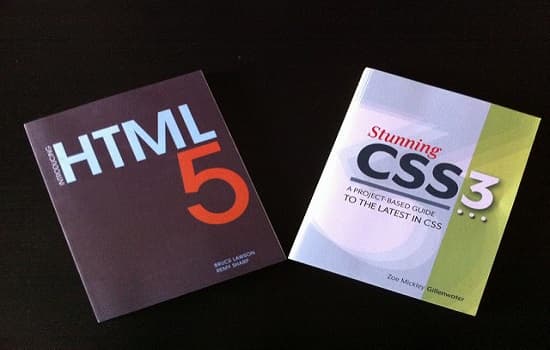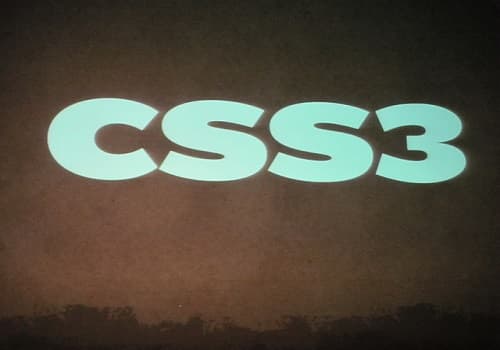Why There Is No Web Development Without HTML And CSS
HTML and CSS are foundational languages used in web development. While HTML is a markup language developers use for creating web pages, CSS is a language that elaborates the presentation of a document written in HTML.
So it can control the look and feel of the content in HTML. CSS or Cascading Style Sheets are highly demanded by clients requiring web pages. HTML being the globally accepted programming language, helps in formatting web pages.
You can change the appearance of images, links, text page layout headings. These days, the trend is to combine both HTML and CSS because they (the clients) get the look and feel that they desire. Even though there are other globally recognised web programming languages, HTML is still very popular because it is perfect for both small and growing businesses, and businesses that need to incorporate advanced functionality on their website.
So everything that you see on a webpage is the combination of CSS (for design), markup text and front-end scripts (interactivity).
Here are some reasons why both of them are absolutely necessary for web development
Advantages of HTML
1) HTML works through annotations
The tags that you have seen in the raw HTML are the descriptive commands embedded in the text. These tags are set between opening and closing brackets, while tags and indicate that whatever is inside those brackets are meant for the browsers to process, and not text to be displayed. These are instructions on how the text should be displayed. The most recent version of HTML is the 2nd edition of version 5 and it defines the way videos, text and images look and feel.
2) It is easy to understand
As HTML is the most commonly used markup language, you will invariably find someone to update your website, even if the original authors of the site are no longer working in your company.
3) Incredible browser support
The browser support that HTML enjoys is far superior to those supported by other programming languages. Creating a website with this one would ensure that it would open on any browser in the world so long as it is commonly used. All the programmer has to do is to optimise the website for the most common browsers in the world.
4) HTML is the most search engine friendly language
Needless to say, your website must be featured in search engines, so sites created with this programming language makes it SEO compliant. As long as the codes are clean and validated, you have a result that’s user-friendly, with faster loading pages, low crawling time and extremely flexible. All the search engine crawlers will find the page as it instantly becomes easily accessible.
Benefits of using CSS
1) CSS delivers design and update efficiency
Through CSS, you can make use of the best practices to speed up your page and improve delivery. Being a powerful stylesheet language, you can create rules, and apply them all to the different elements within the website, depending on what the client needs. It is also a great relief that the content part is separate from the Style Sheet, and hence include every application instance.
2) Faster page downloads
Rules are downloaded only once after which they will be cached and used for each page load. You don’t have to download them each time. This allows for faster page downloads, leading to lighter server load and through that money saving feature.
3) Easy and smooth updates
As mentioned earlier, CSS works by creating rules that are applied to several elements within the site simultaneously. Eliminating the need for repetitive coding makes it easier for faster development, with less number of errors. The changes in the website can be implemented at the same time because the content is separate from the design part.
4) It is easy to work with CSS
Working with CSS is a piece of cake as you can keep every visual aspect of the website different from the content. This makes it very easy for you to create layouts, troubleshoot problems and control all the elements in the stylesheet.
Using both HTML and CSS would give you the following benefits
- Get best results with your web development endeavour: Once you are thorough with the basics of HTML and CSS, you can use them to make great projects. Knowledge of basic skills of CSS and HTML is not just an optional skill, but a definite enhancement to a developer’s career.
- Unique projects across multiple browsers: The combination of HTML5 and CSS3 would definitely give you excellent results. If you don’t want your project to look like any other person’s website, you can combine the best elements of these both. They help you create unique, personal websites, and these can be opened across multiple browsers.
- Both are easy to learn: Both these programming languages are extremely easy to learn. Just spend a few days to understand the basics, and you can take off from there. You can try innovative things with them, and move on to learn other programming languages, because once you get a grasp on these languages, learning the others would be a piece of cake.
- A skill that can be enhanced several times over: Knowledge of both HTML and CSS are very rewarding because the demand of developers who have knowledge of both are very high. And they earn good money too. Developers who know these two languages can enhance their skills by adding Javascript, PHP, Photoshop knowledge etc.
- Allows for offline browsing: How about creating apps that can function even without the internet? HTML5 and CSS3 approach lets you do that through local storage of web application code and content. This is done through offline application cache feature, and a great boon to businesses wanting to give an offline web experience to their users.
Closing thoughts
The content management system, WordPress uses HTML, CSS and Javascript to render web pages. Hence, you can say that it is an advanced implementation of HTMLS and CSS3, with a good measure of back-end code thrown in. As it is one of the most popularly used methods of creating websites, you can easily make the best of these two languages and JS and PHP for generating sites with amazing customisation possibilities.
Interesting links about the topic:
An answer regarding HTML and CSS on Quora
101 Top Web Languages
Pictures: Flicker.com/ Cyril Doussin/ Jeffrey Zeldman

The author: Reema Oamkumar is engaged as a thought leader at www.Software-Developer-India.com which is a part of the YUHIRO Group. YUHIRO is a German-Indian enterprise which provides programmers to IT companies, agencies and IT departments.


